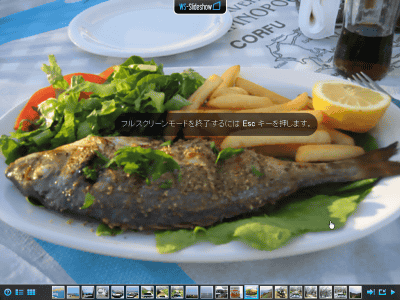'Manga Editor Desu!' allows you to create manga-style frame designs by combining image generation AI for free

Manga Editor Desu! is specialized for manga production and allows anyone to easily create manga-style frames and arrange images for free. In addition, by combining it with the image generation AI
Manga Editor Desu! Pro Edition: The Premier Standalone Manga Editing Platform
https://new-sankaku.github.io/SP-MangaEditor/
SD WebUI / Forge or ComfyUI + Manga Editor =💪💪
— Sankaku@Desu! (@hypersankaku2) November 23, 2024
A completely free web manga creation app. No annoying paywalls. Any feedback would be appreciated! It works perfectly on the web and as an extension.
[Web site] https://t.co/34WrDy2n2W #aitools #mangatwt #ComfyUI #sdxl
[Generative AI] Manga Editor Desu!, a free web app specialized for manga creation | Hyper Sankaku
https://note.com/vivid_walrus6061/n/n7f4fd9e34d7a
Manga Editor Desu! can be opened in a browser. The UI is in English by default, but when you first start it, a guide to 'Choose your language' is displayed.
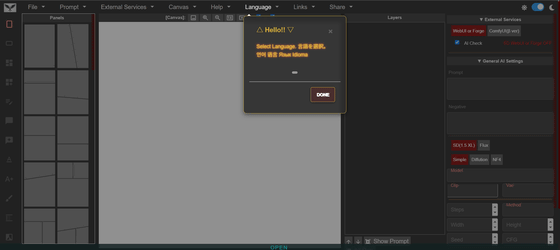
Select 'Japanese' from 'Language'.
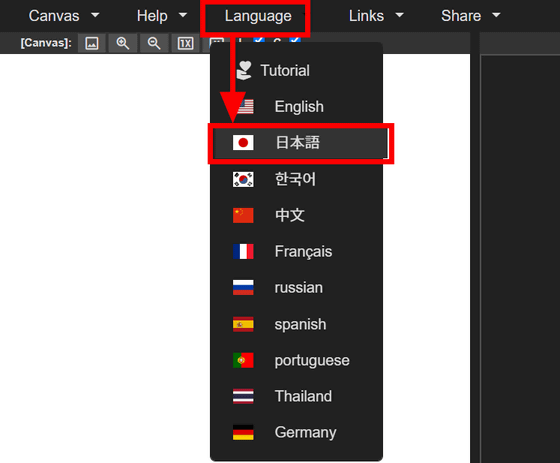
The UI is now in Japanese.
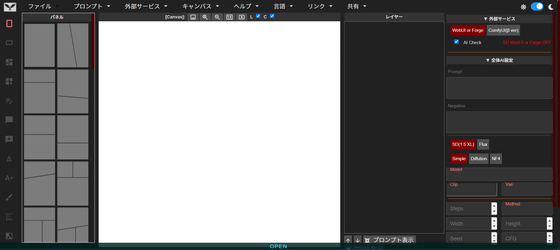
First, let's try a basic panel layout. Click on a vertical or horizontal rectangle from the menu on the left, and select the type of panel layout you want for the page.
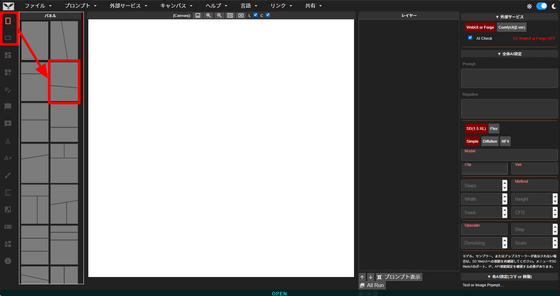
The page with the selected frame layout is displayed.
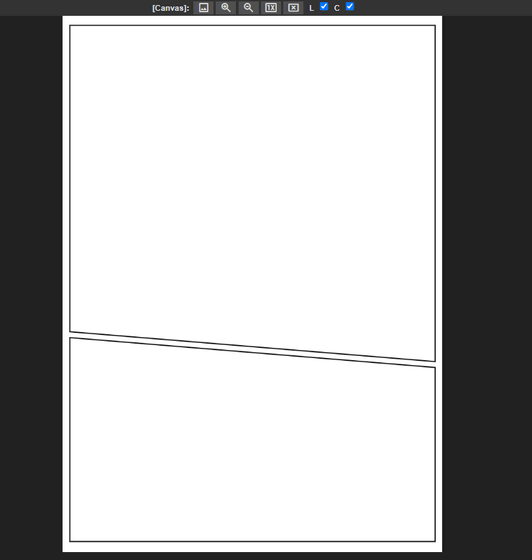
You can also add frames and divide them freely. Select the third item from the top of the menu and click 'Knife ON.'
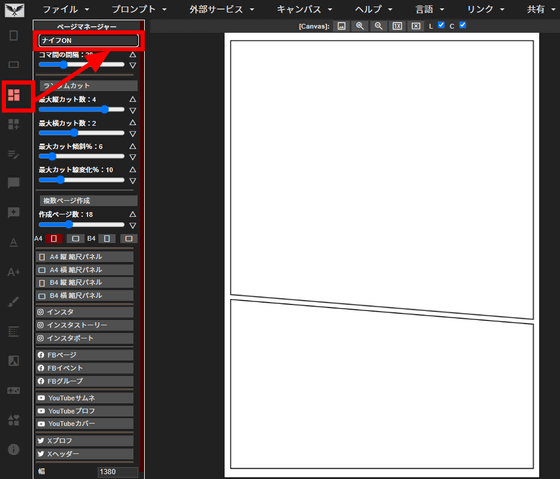
When the red 'Knife OFF' is displayed, you can move the cursor on the page to cut the frame where the cursor is located further and divide it into smaller frames. If you move the cursor further from the point where you clicked, you can also adjust the angle of the line.
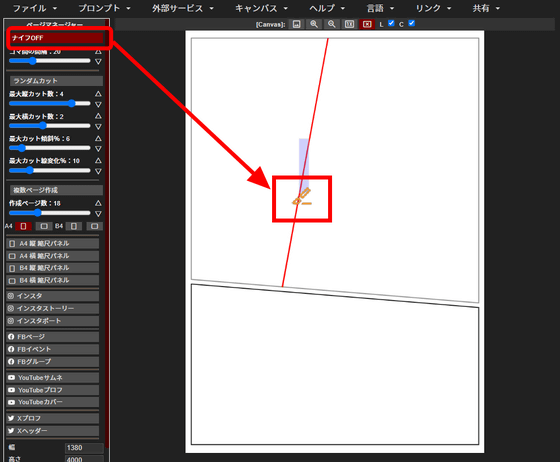
I was able to add a frame.
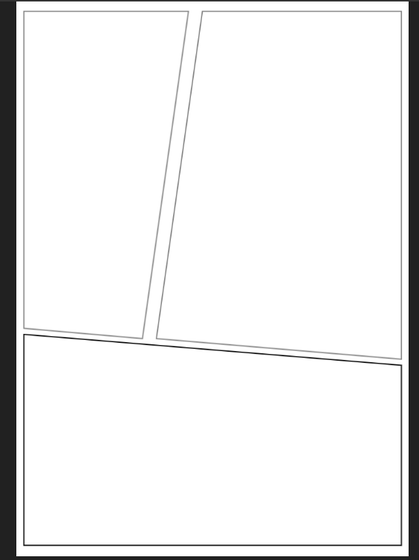
Also, if you click 'Random Cut' with only the outer frame added, it will automatically suggest frame divisions for the page according to the specified 'Maximum number of vertical cuts,' 'Maximum number of horizontal cuts,' 'Maximum cut inclination,' and 'Maximum cut line change %.' The vertical and horizontal 'number of cuts' are the number of times to divide the page, 'cut inclination' is the angle of the line to divide the frames, and the lower the 'cut line change %,' the more stable the size of each frame will be, while a higher value makes it more likely that extremely small frames will be produced.
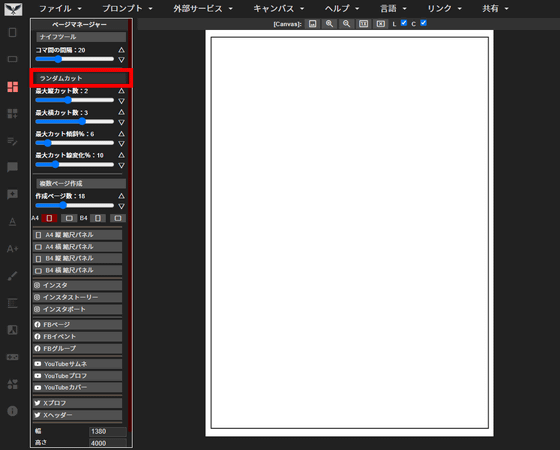
The results of random cutting are as follows:
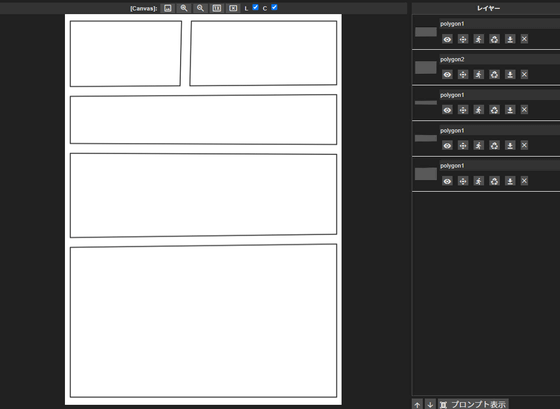
Once the page frame layout is complete, you can start adding images. To place an image from a folder on your computer onto the page, simply drag and drop the file from the folder.
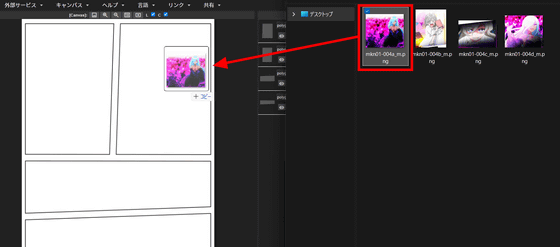
The image is now placed so that it fits within the frame. You can also move the image within the frame and enlarge or reduce it.
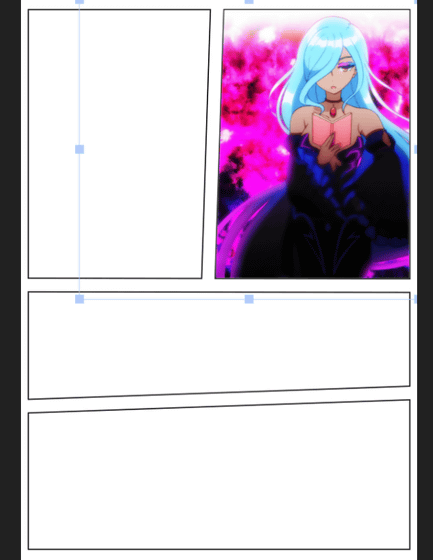
If you put images in all four frames, it will look like this:
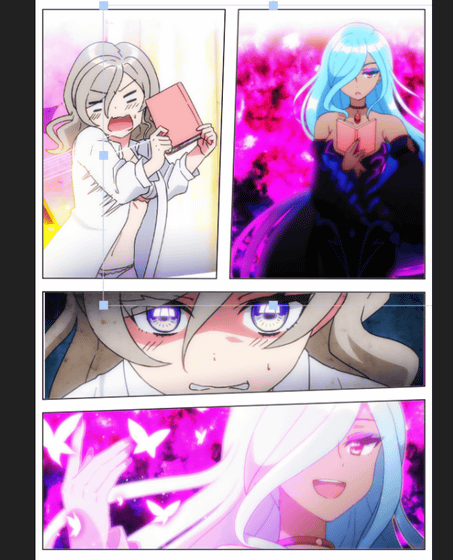
Next, add manga dialogue using the speech bubble tool. You can change the background color, border color, and opacity of the speech bubble. However, lowering the opacity makes the entire speech bubble transparent, so you can't set it to 'make the border dark and only the background transparent.'
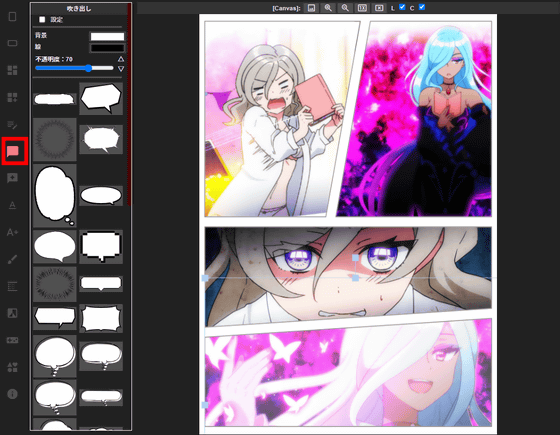
When you select Speech Bubble from the Tools menu, a speech bubble appears on the page. You can also see that it has been added as a new layer under 'Layers' on the right.
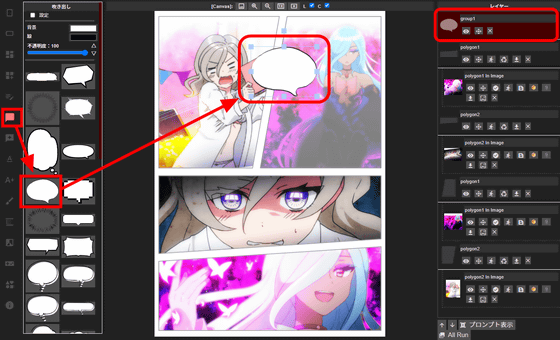
By clicking on 'Coordinate Mode', you can create a balloon of any shape by connecting the points you click.
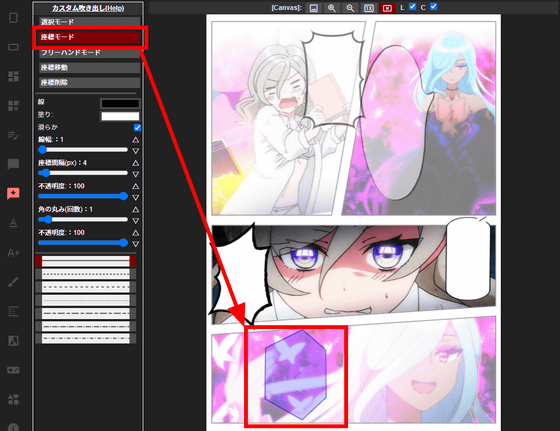
Coordinate mode creates shapes by connecting straight lines, resulting in a angular speech bubble like the one below.
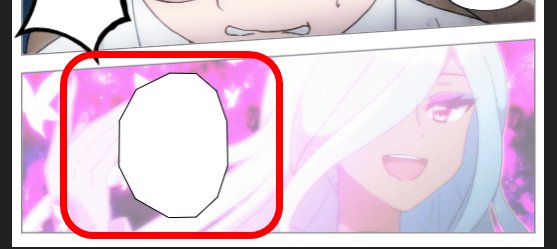
Another feature of the coordinate mode is that you can fine-tune the speech bubble you created by using 'coordinate movement.'
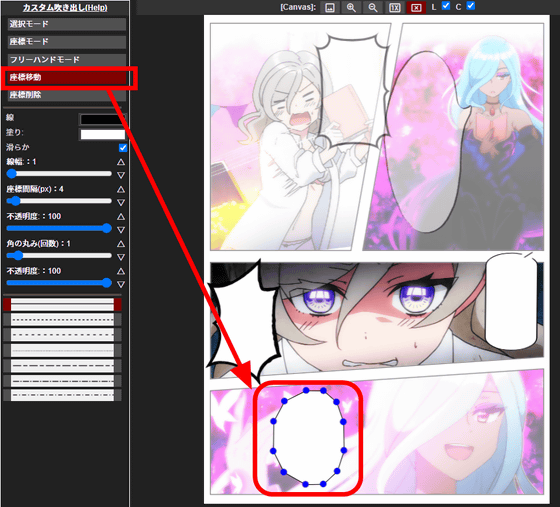
In addition, the 'Freehand mode' is a bit more difficult to use, but allows you to draw speech bubbles of more free shapes.
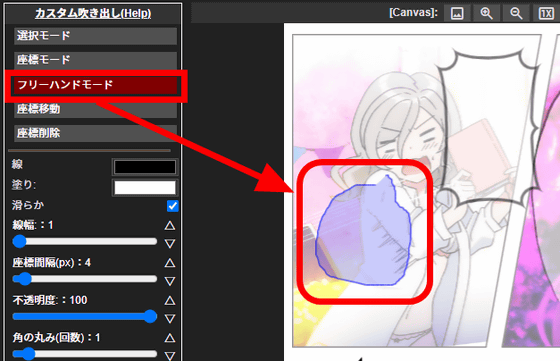
Once the balloon is placed, select the text tool from the menu and click 'Vertical writing'. Then, a text window with 'new' written on it will appear on the page. Just erase the word 'new' and enter your text.
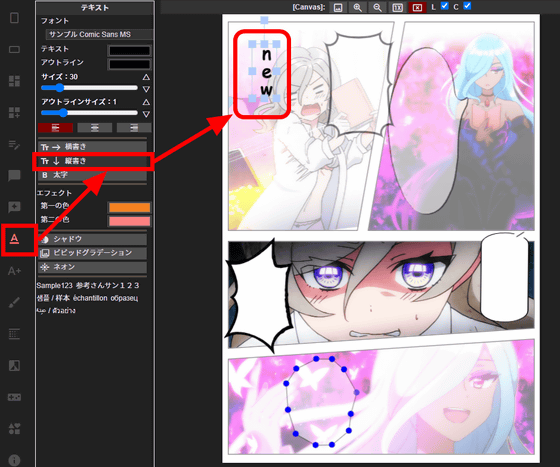
You can choose from 30 fonts for the text you enter, including
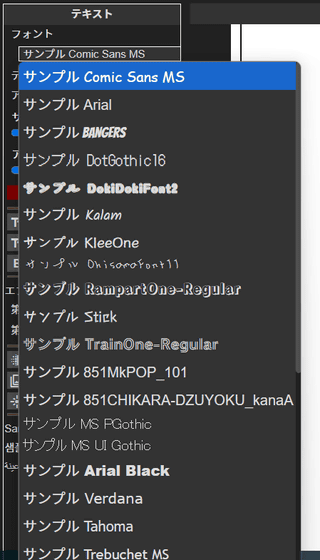
Additionally, you can use the image processing tools in the menu to process images into black and white or convert them into a rough style.
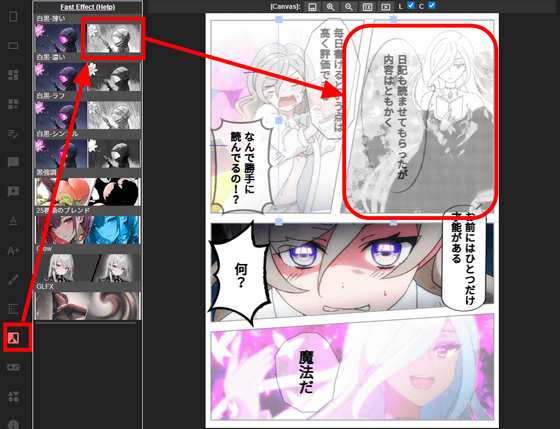
You can download the PNG file of the image you created by clicking 'File' and then 'Download Image.'
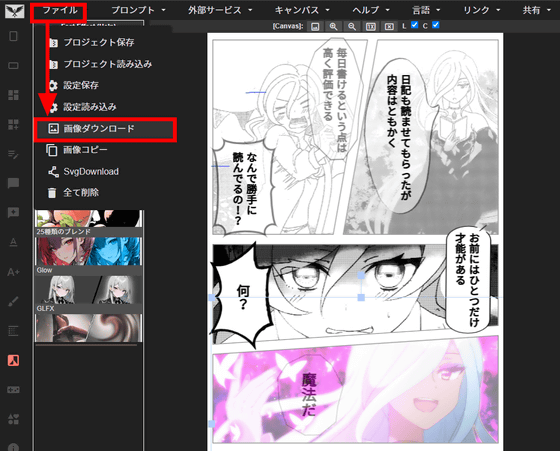
To save your work, click 'File' > 'Save Project.' It will take a while for the project to download, so be careful not to close your browser for a while.
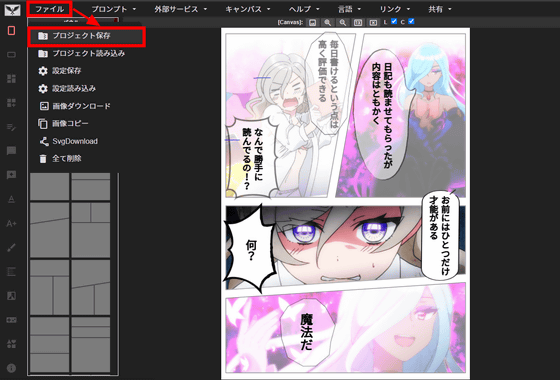
To resume a saved project, click 'File' > 'Load Project.'
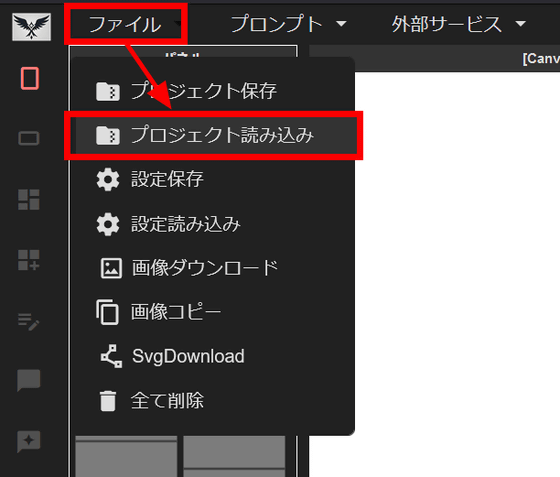
Select the 'project.zip' you downloaded and click 'Open'.
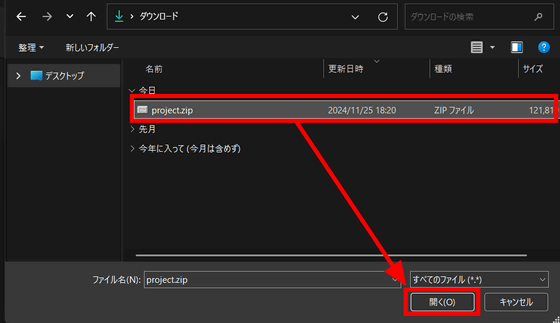
I was able to reopen the saved project. It took a while for the saved project to load, so if you open a project and it keeps showing a blank page, you might need to wait a bit.
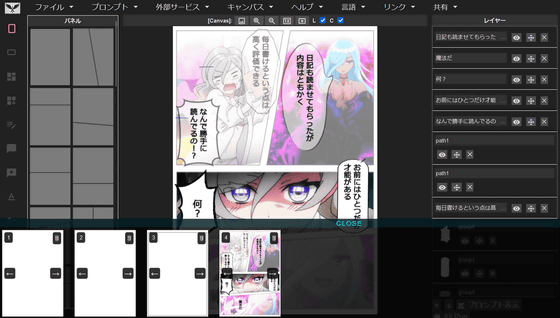
Furthermore, in Manga Editor Desu!, if you select a frame and click the 'Generate image' button, you can generate an image using Stable Diffusion and enter it into the frame. However, if you just click it, an error message will appear saying 'Failed to connect to SD WebUI. Please check the API connection settings from SD WebUI in the menu,' so further settings are required to use the API. In the next review article, we will actually set up the API in Manga Editor Desu! and try to generate manga images using AI, so please look forward to it.
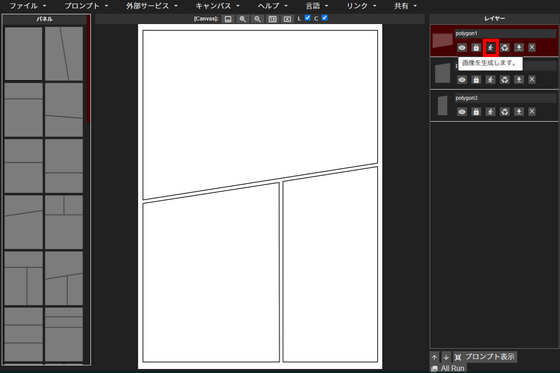
Manga Editor Desu! is easy for anyone to use, from splitting frames to adding speech bubbles and entering text, so it seems like it will be useful for putting ideas into shape, such as combining generated illustrations or processing photos into manga-style posters. However, for those who are used to other image processing apps, there are some parts that are not intuitive to use, and there are often some parts that are difficult to handle, such as 'When I tried to undo the movement of an image with Ctrl + Z, the action of adding the image was canceled' and 'The object was fixed semi-transparently even though I did not change the settings.' You can try it out for free and without registration, and there are still more features being added, so it is recommended that you try it out first to see what it feels like, as 'in the future, it will be possible to work with LLM to create smarter manga.'
More information about Manga Editor Desu! is available on GitHub.
GitHub - new-sankaku/stable-diffusion-webui-simple-manga-maker: It is an Extension feature used in the WebUI for Stable Diffusion. You can create simple comics with it.
https://github.com/new-sankaku/stable-diffusion-webui-simple-manga-maker
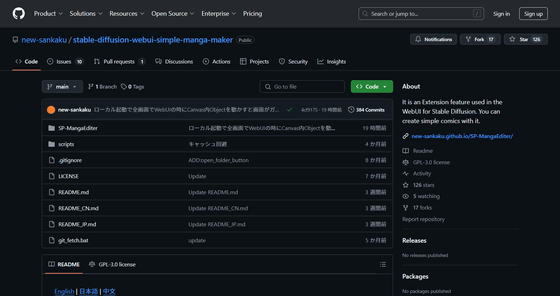
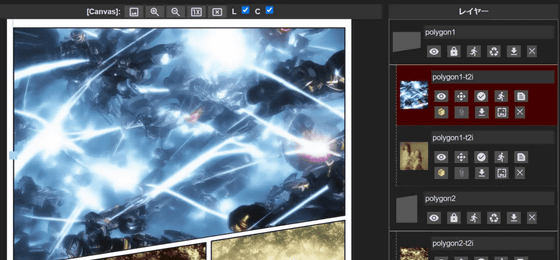
Related Posts:
in Review, Web Service, Web Application, Posted by log1e_dh







